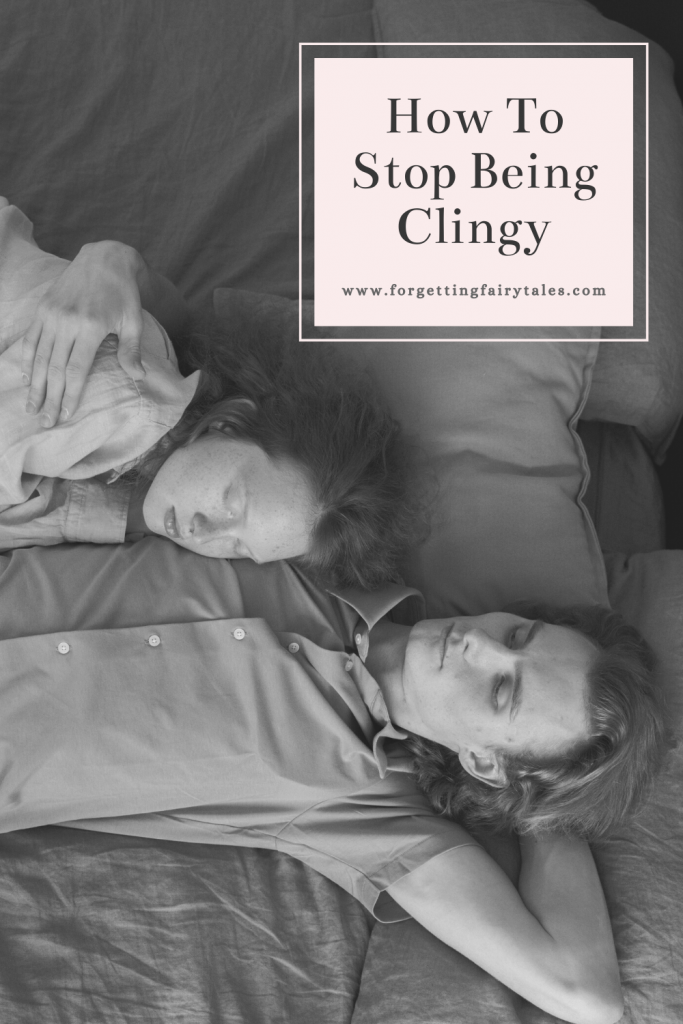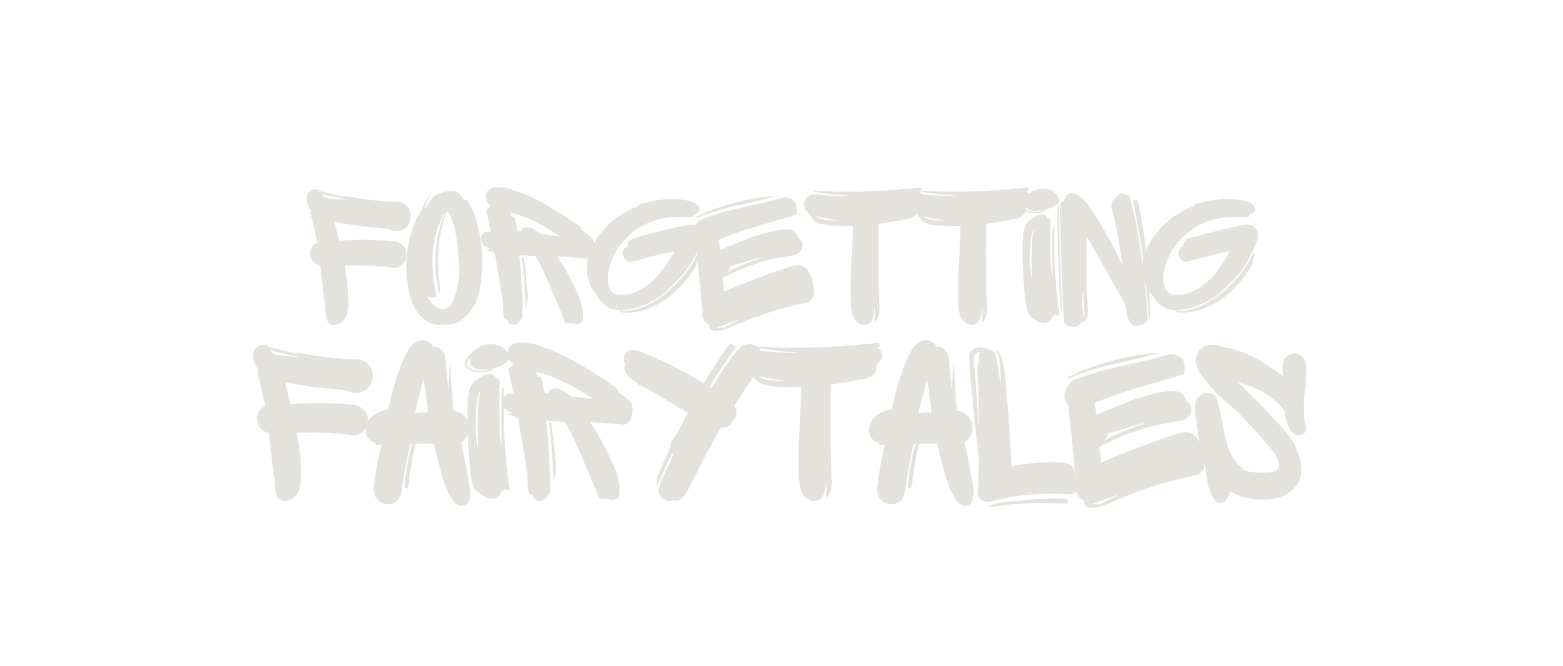What does clingy mean in a relationship? What causes clinginess in a relationship? And how do you stop being clingy in a relationship? In this post, we’re going to break it all down, so that you’re no longer needy or overly dependent in a relationship. Instead, you have the dynamics right, and have enough space for your relationship to breath and grow! So let’s start from the top. Here’s how to stop being clingy in a relationship…
What Is A Clingy Person?
First off, is you want to know how to stop being clingy, I guess we better get clear on what being clingy actually means. What is a clingy person? And what does clingy mean in a relationship?
Well, by definition, a clingy person is…
“Someone who is too emotionally dependent on someone else.”
If you’re a clingy person, you will naturally want to stay very close to someone – for love, support and protection. This is actually wired into every one of us – to some degree – as it’s kind of human nature.
In fact, it’s similar to the need of feeling hungry and wanting food. (Honestly, it’s true!) You like the person, you feel safe with the person and so you want to be around them.
Some people are just naturally clingier than others, however, and would therefore probably fall into the category of being classed as a “clingy person.” We’ll explore why shortly, but essentially this is down to: your personality, your past experiences, and how you attach in relationships now.
Is It Bad Being Clingy?
Being clingy has long been deemed as a bad thing, an undesirable trait, a turn off. In fact, “Clinginess was named the biggest relationship turn-off in a scientific study.” (Yikes!)
The problem is, it’s a phrase that is often thrown around too easily – the label coming out as an insult, or the term even used as a joke.
See, being clingy is NOT:
- Wanting a few extra cuddles when it’s the “time of the month.”
- Or, craving extra affection when you’re feeling hungover.
- It’s also absolutely okay if there’s times when you miss your partner, and just want to feel closer to them. Maybe you have a lot going on in your life, and just need the love and security of your relationship. Or perhaps your relationship is going from strength to strength, you really appreciate your partner and just want to show your love for them. There’s nothing wrong with that, as long as it’s not over-the-top and 24-7!
But if we go back to the definition of clingy – it’s about being TOO dependent on the person. So it’s when you go above your natural, “normal-level” cravings, and there’s this “NEED” – like you can’t cope without them.
When it reaches that level, and hits the full definition of clingy in a relationship (not just something that’s thrown around), well, that’s when things start to become unhealthy.
It’s not good to be so dependent on one person. Not good for you, and not good for your partner.
It can become suffocating – which is why you want to learn how to stop being clingy, and better control your clinginess, so that your clingy behaviour isn’t constant or excessive and you’re not being unreasonable, demanding or controlling as a result of it.
Recommended Read: How To Stop Being So Controlling in a Relationship
See, you’ve got to get the right balance, and to be able to control how YOU act, as opposed to constantly feeling like you need to be around your partner to control them, or – in more cases – the situation.
What Does Clingy Mean In a Relationship?
So what are the signs you’re being clingy? Uncontrollably clingy? What does being clingy in a relationship actually look like, so that you can better recognise it?
Well, have a read through these and see if it sounds a little familiar…
If you’re clingy in a relationship (and not just on an off day!) you’re likely to:
- Constantly text your partner and get upset or worried if they don’t text you back within a timeframe that you think is reasonable… which is often, actually unreasonable!
- Text excessively when they’re busy – like when they’re at work or out with friends. I mean, come on, give them a break!
- You may also even often double, triple, quadruple text, or give multiple phone calls. (Geeeez!) This usually happens when you’re in panic-mode, but you could also do it simply because you like to get what you want, when you want it.
Signs You’re Clingy In a Relationship
If you’re clingy in a relationship you may find that you…
- Follow them around. I mean, literally, around the house. And when out and about – like if they’re running errands and you insist on going along with them.
- Feel hurt or angry if they go out without you, especially multiple times. Are they not interested in you anymore, do they not feel the same way? – These are the kind of things that will then run through your head.
- Start to dislike things or people that “take them away from you”. You’re also likely to feel threatened by ex’s / past lovers. You’re irrationally jealous and nothing they say quite eases it.
Some other signs you’re clingy in a relationship include…
- Stalking them on social media. They don’t know it, of course. But you’re the first to notice a new story, a new post, a comment they made, a post they liked.
- Overanalysing their actions on social media.
- Or just… overanalysing their behaviour in general!
- You also probably don’t trust them. This is because clinginess is often closely linked to insecurity.
- You always prioritise them, but overly so. It’s always them, and often only them. Forget friends – your focus is on your partner, that’s your biggest concern!
- You move the relationship along quickly. This is for security more than anything else, but links back to the attachment that you have and wanting it to deepen or strengthen.
- You’ve lost your own interests. You don’t do your own thing so much anymore.
- You’re either too accommodating, tolerating anything just to keep him happy, keep him there…
- Or too demanding. You put unrealistic expectations on him and put pressure on the relationship.
The thing is, if you’re being clingy, you don’t really want to be. None of this behaviour makes you happy. None of it makes you feel good.
But that’s why you have to recognise the signs and decide to change…

How To Stop Being Clingy In a Relationship
So how do you do it? Well, if you want to know how to stop being clingy, I’m going to guide you through, step by step, right now.
(So listen up, and listen up good. This is the moment is all starts to change!)
Step 1: Recognise The Source
So the first step to know how to stop being clingy is to understand where clinginess comes from. What is making you clingy in a relationship? Why are you behaving this way?
Once you know that, you can actually get to the root of the problem to better address it. So let me run through a few potential reasons with you.
Have a read, have a think, recognise what sounds most like you, recognise what else it could be, and then let’s go from there.
“Why Am I So Clingy?”
Clinginess can be a caused by a variety of things. To touch on just a few, it could be down to:
> Low Self-Esteem or Insecurity
You may be clinging on or demanding attention because of the fear that your partner doesn’t feel as strongly as you do, you’re not good enough for them, or they’ll leave you for someone else.
Maybe you’ve always struggled with low-self esteem, or it could be caused by a negative past experience – a toxic relationship, a partner cheating or breaking things off without warning, for example.
> Anxious Attachment Style
It could also be a manifestation of attachment styles learnt earlier in life. Our attachment style describes how we tend to form relationships with others and how we relate to them.
Different attachment styles mean differing sets of behaviours within relationships. Someone who seems to need constant reassurance may have an anxious insecure attachment style. Click here to find out yours.
Closely related to this, are Abandonment Issues. If you struggle with Fear of Abandonment, you’re also far more likely to get anxious and cling on.
You can find out more about this (and how to work through it) in our Abandonment Series.
> Bad Habits
You could also find yourself being clingy, not because of anything “deep” but simply out of bad habit.
Perhaps you don’t have enough hobbies or interests away from your relationship. Maybe your friendship circle is pretty small which is why you make your partner “your world.”
It’s nothing to feel embarrassed about, and if it is down to this – that’s actually good news as it’s the easiest thing to work on!
What Causes Clinginess In a Relationship?
Now there’s also another major cause of clinginess, that’s actually slightly different. See, it could be that:
- Your partner is telling you that you’re being clingy, when actually – what you’re asking for is not unreasonable. What they see as clinginess you may simply see as a reasonable request for your needs to be met. (In this case, you’ll probably have found that many of the signs of clinginess as listed above, were not actually you.)
- Going one step further than this, it could also be that your needs aren’t being met, you don’t feel appreciated in the relationship, which – as a result – is brings up insecurities. This leads you to act in attention-seeking behaviours. Inherently you’re not a clingy person. It’s simply that your desires aren’t reciprocated on the expected level and so it’s resulting in you acting in ways that you don’t even want to.
In both of these cases, it’s important to not pass blame. Instead, you need to work on communicating honestly, calmly and openly with your partner so that you both understand each other, the differences you have, and how to best work together to make one another happy.
How To Change Your Clingy Behaviour
So now you know why you’re being clingy, you can then take the action that you need to work on it. Regardless of the cause, in order to stop being so clingy, you have to:
- Identify the issue.
- Swat up on better understanding it.
- Put into action the suggestions for changes that you learn and read about.
- Speak to a therapist or coach to help you work through it.
- Keep taking consistent action to work on it, until you feel the shift within you.
This process can be applied to literally any cause of clinginess. It just takes a bit of work… and commitment… but I know you’ve got that.
You don’t want to stay in the same place. You’re serious about this change!

How To Stop Being Clingy
So you’ve recognised where your clinginess is coming from, and are working through it as the first step. Amazing. So what else do you need to do to be less clingy? Well…
Step 2: Set Yourself Boundaries
Next up then, if you want to stop being clingy in a relationship, you have to set yourself some boundaries… then commit to sticking to them!
- Know what is and isn’t okay.
- What is and isn’t healthy.
- Where you need to give your partner more space.
- The kind of situations you need to work on dealing with better.
- Any old habits you need to replace.
You don’t have to work all this out on your own. Talk to your partner about it – get a little clearer on it all, together.
This in itself is a helpful conversation as it means you’re also able to better understand each other, and both of your needs.
By also doing it together, you feel more supported and can discuss the things your partner can also do, to make these changes easier for you.
You are – after all – a team, remember? And this will benefit the both of you.
Step 3: Learn To Be Your Own Person
Another fundamental step when it comes to how to stop being clingy, is to learn to be your own person. Take time to get to know yourself again, to re-create yourself even, if you want or need.
Here, bob on over to these two articles:
In fact, whilst we’re on the topic of recommendations, I also want you to have a read of:
It’s time to stand on your own two feet, girl. And to feel confident doing so! To want to do so.
Know that, as you ease away from your partner to regain the right balance, that doesn’t mean that you lose the closeness or connection with them . In fact, you only strengthen it, because you’re able to flourish into the person that your partner most loves!
You’ll also find, that by doing so, you’ll find more love for yourself too. And you don’t have to feel alone – as you still have the encouragement and support of your partner. You can also lean on your friends and family too!
Step 4: Work On Your Confidence
I touched on it a little above but I want to highlight it again. See, this clingy behaviour… it’s not you. Not really. And it’s certainly not who you want to be.
Like we said previously, self-doubt, insecurity and a lack of confidence usually always comes into it. For this reason, working on building yourself up – not just in the way you act but the way you feel inside – it’s everything when it comes to how to stop being clingy.
Now when it comes to how to improve your confidence, this can often feel a little daunting. So why not start with this 30 Day Self Love Challenge? Then you’re taking small steps, daily, to improve the way you feel about yourself.
You can also ask yourself one of these questions every day – as these are designed to increase self confidence. Then swat up further with confidence books, training videos, or by working with myself – a Specialist Coach.
The better you feel in yourself, the better you will act in your relationship. So as part of this, you may also want to explore:
- What things are knocking my confidence right now?
- What deep rooted issues should I probably really work through?
- How well do I manage my mind and my emotions?
- How do I feel in myself, and about myself as a whole?
The great thing is, there’s plenty you can do. Just make sure that you do at least one thing today. One little action, that’s going to push you in the right direction towards change. And then keep working on it from there…
Work through everything you need – for yourself, and your relationship. So that you can continue to thrive, together.
Step 5: Shift Your Focus
Last but not least then, I’m going to finish off with a handy little strategy, that you can put into action whenever you need. How it works? Well it’s quite simple.
Every time you find yourself feeling clingy – every time you feel a burst of clingy behaviour coming on, shift your focus.
So maybe you’re about to pick up your phone to text again. Instead, drop it. Put it down. Push it to the side. And spent some time reading a personal development book or cracking on with a project you’ve wanted to start for a while now.
Or let’s say your partner’s going out and you feel yourself starting to get a little funny about it, stop thinking about THEM and start thinking about YOU. What could you do? How will you enjoy your night? Could you go out too? What would be a better use of your time than worrying?
You see? Whatever the situation, whenever you’re recognising the clingy behaviour coming on – stop yourself in your tracks and do or focus on, something else instead.
Try it. And keep trying it. Until it becomes a new habit.
And if you do this after doing all of the key tasks mentioned above, then the Focus Shifting Strategy will work far better. #TrustTheProcess
How To Stop Being Clingy In a Relationship
All change starts with a decision. So if you want to stop being clingy, the best thing you can do it to DECIDE. Decide, right now, in this moment that enough is enough. You don’t want to be this way, and you won’t be this way anymore.
And yes, there may not be this instant, magical change. Maybe you’ll have a few slip-ups along the way… but that’s okay. Because it’s all about progress, and continuing to learn, grow and move forward in the right direction.
So keep working on all the things we’ve ran through. Keep talking about it with your partner too. Don’t make your clinginess something that’s embarrassing or shameful. Make it like –
“Yep, I know I have these tendencies, but they’re going to be in the past. Work with me on this. Keep me on track!“
A supportive partner, makes the world of difference. And the stronger, more loving, more trusting a relationship it is – the less you will feel the need to be clingy. Well, the less you should anyway…
If you’re still being clingy when you know you have a partner who loves you and won’t be leaving you, then it goes back to those internal issues – that fear of abandonment, the intense self-doubt. And when this takes over – it doesn’t matter what your partner does, you’ll still feel the way you do and consequently act the same way you are right now.
How To Stop Being Clingy
So like I said, get to the root of the problem, research, learn, take action and keep taking action.
Keep working through this process for how to stop being clingy, and alongside this – continue to strengthen your relationship, to make it the best that it can be.
And that doesn’t mean you have to put PRESSURE on it. It just means you have to keep feeding it… keep watering it, like a plant, so it blossoms.
You can do this. You can stop being clingy and start to get the right balance in place.
Commit to it. Believe it. Keep working on it. And stay in the right frame of mind.
Good luck!
Love,
Ell_xx


